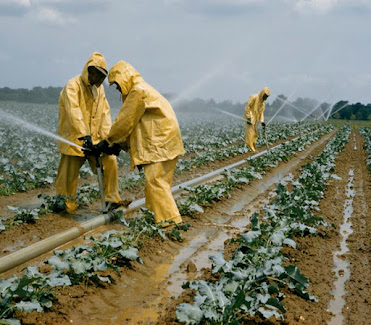Environmental Impact of the Agricultural Revolution
In the annals of human history, few events have shaped the course of civilization as profoundly as the agricultural revolution. As societies transitioned from nomadic hunter-gatherer lifestyles to settled farming communities, a ripple effect was set in motion, profoundly altering the environment we inhabit.
Imagine a landscape once untouched by human hands, transformed into a patchwork of cultivated fields. The agricultural revolution brought forth a surge in food production, allowing for population growth, urbanization, and the rise of complex civilizations. However, this newfound prosperity came at a cost to the environment.
One significant impact of the agricultural revolution was deforestation. As communities cleared land for cultivation, vast swathes of forests were felled, leading to habitat loss, soil erosion, and a decline in biodiversity. The balance of ecosystems was disrupted, with far-reaching consequences that reverberate to this day.
The intensification of agriculture also brought changes in land use and irrigation practices. Wetlands were drained, rivers were diverted, and water sources were harnessed to support the growing demands of crops. These alterations resulted in the depletion of water resources, reduced water quality, and the loss of valuable wetland habitats.
Furthermore, the widespread use of irrigation and the adoption of monoculture farming practices led to soil degradation. Soil erosion, nutrient depletion, and salinization became pervasive issues, impairing the long-term productivity and sustainability of agricultural lands.
Pesticides, herbicides, and fertilizers became commonplace, aiding in increased crop yields but also introducing chemical pollutants into the environment. These substances had unintended consequences, including water pollution, disruption of ecosystems, and the decline of beneficial insects and pollinators.
However, it is important to acknowledge that the agricultural revolution also brought positive changes. It alleviated the constant struggle for food and allowed for human progress and cultural development. It is through agriculture that societies were able to flourish and advance.
Recognizing the environmental impact of the agricultural revolution is crucial in order to address the ongoing challenges we face today. Sustainable farming practices, such as organic farming, agroforestry, and precision agriculture, offer pathways to mitigate these environmental consequences. Conservation efforts, reforestation initiatives, and responsible water management practices can help restore balance to ecosystems.
As we reflect on the profound effects of the agricultural revolution, we must strive for a harmonious coexistence with nature. By embracing sustainable agricultural practices and nurturing a deep respect for the environment, we can ensure that the legacy of our agricultural endeavors is one of preservation, nourishment, and a thriving planet for generations to come.



Comments
Post a Comment